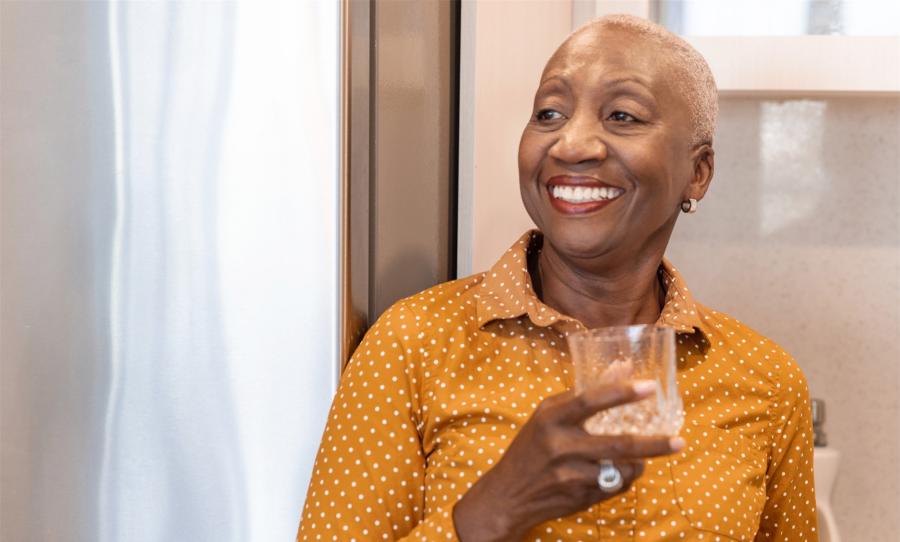Hydration Tips for Seniors

Proper hydration is essential for our overall health. Water is necessary for nearly every bodily function including regulating temperature and blood pressure, keeping muscles and joints moving, and moving waste out of the body.
This is especially true for older adults who are at a greater risk for dehydration. Unfortunately, dehydration is a common cause of hospitalization among elderly people.
As we age, our sense of thirst diminishes, so we might not realize that our body needs water. Older adults also have less water in their bodies to start with as compared to younger adults and children.
In addition, medical conditions and medications can cause a greater risk of dehydration. Many older adults take medications that are diuretics, which increase the amount of water leaving the body. Medical issues and illnesses also cause water to leave the body more frequently or result in a fluid imbalance. And mobility issues can make it harder for older adults to physically get something to drink
Recognizing the signs of dehydration is also an issue for older adults. Many of the early signs of dehydration, like dry mouth, fatigue, dizziness, and muscle cramps, are generic and could be easily attributed to other medical conditions, medications, or natural effects of aging.
Recommendations for how much water seniors should drink are about the same as they are for any adult: approximately 8, 8-ounce glasses a day. Another guideline is to divide your weight by 2 and drink that number in ounces. Always consult your doctor regarding your specific water intake needs and how best to reach them.
Here are some more tips to help you stay hydrated:
- Have a reusable water bottle or cup that you can carry around with you and easily refill with tap water. You're more likely to drink water if it’s with you. And you’ll save money and help the environment by filling up your water bottle throughout the day rather than buying bottles of water.
- Make hydration an all-day event. Sipping water throughout the day is a more effective way to stay hydrated than drinking a large volume all at once. Additionally, many older adults can’t drink a full glass of water in one sitting.
- Drink on schedule. Set reminders for regular water breaks and make sure you drink water at meal times, before and after physical activity, and first thing in the morning.
- Food and other beverages count. Food with high water content, like fruits and vegetables, and other healthy beverages, like milk, broth, or smoothies, also count toward daily fluid intake needs.
- Drink alcohol and caffeinated drinks in moderation. Alcohol, coffee, and soda have a diuretic effect, removing water from the body rather than replacing it.
- Flavor your water. Try adding fruit, herbs, or a splash of 100% fruit juice for added flavor without the sugar of juice or sports drinks.
